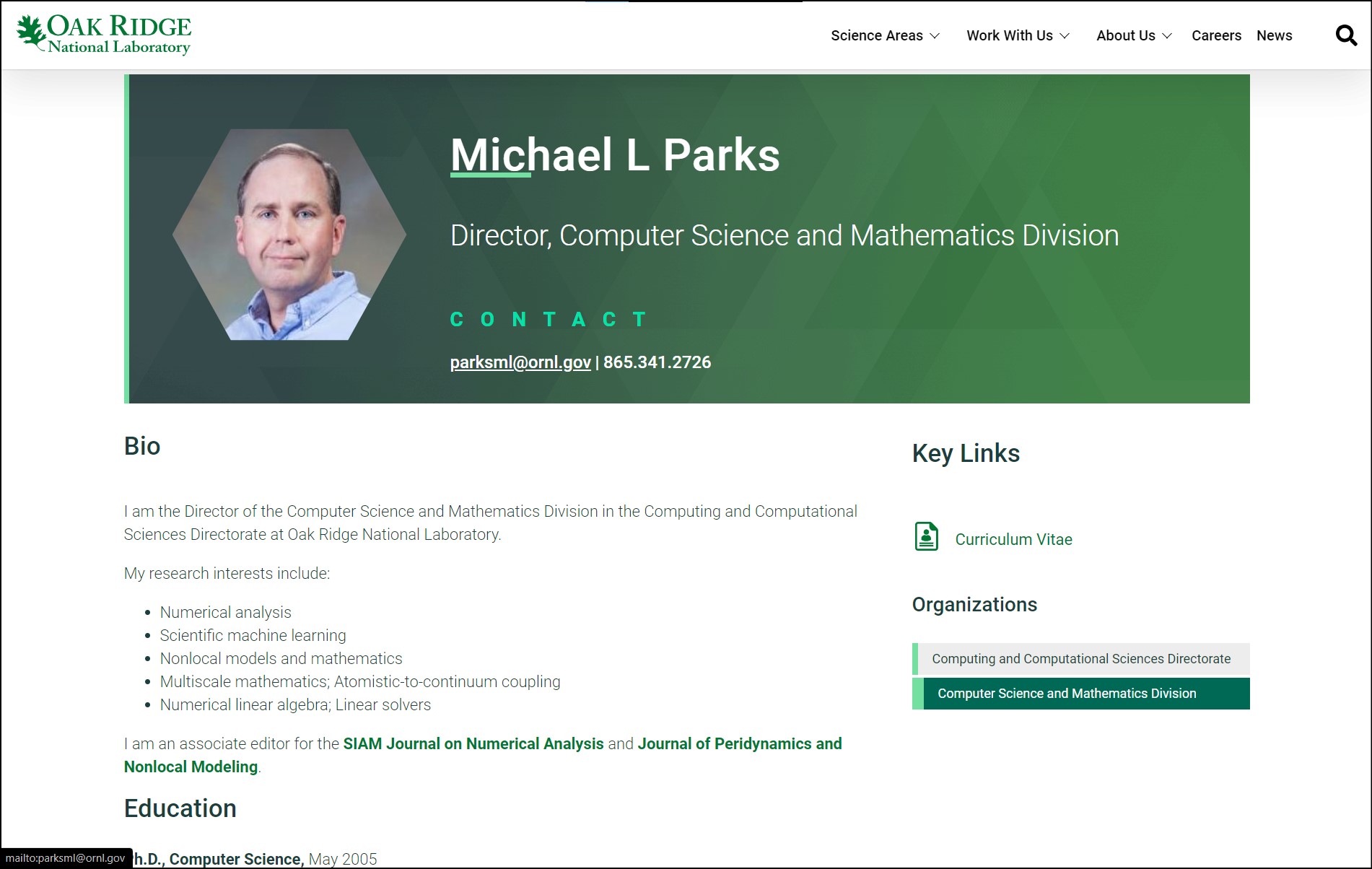
Dr. Parks, Director of the Computer Science and Mathematics Division at Oak Ridge National Laboratory Visits the UNL Math Department
This week, Dr. Mikil Foss and Dr. Petronela Radu are hosting Dr. Michael Parks (https://www.ornl.gov/staff-profile/michael-l-parks), Director of the Computer Science and Mathematics Division at Oak Ridge National Laboratory (ORNL). He will give a seminar for the STEM CONNECT program tomorrow, as well as a talk in the Continuum Mechanics Seminar on Thursday and a colloquium on Friday (details for the last two events are below).
As we are seeking to expand our research horizons, we asked him to give an overview in Friday's colloquium about research areas and opportunities at national laboratories. Having served as the Manager of the Computational Mathematics Department at Sandia Laboratories for almost 10 years, he has extensive expertise and knowledge about non-academic research. He has also kindly offered to meet one-on-one with students and faculty; if you would like to set up such an appointment, please email Dr. Foss (mikil.foss@unl.edu) or Dr. Radu (pradu@unl.edu). Finally, we asked him to reserve a generous amount of time for questions on Friday, so hopefully we will have some productive discussions.
=======================================
Bio: Michael Parks is the Director of the Computer Science and Mathematics Division at Oak Ridge National Laboratory (ORNL) in Oak Ridge, Tennessee. Prior to moving to ORNL, he was the manager of the Computational Mathematics department in the Center for Computing Research at Sandia National Laboratories in Albuquerque, New Mexico. His research interests include nonlocal models, especially peridynamics, multiscale modeling and simulation, domain decomposition methods, and iterative solvers. He holds bachelor’s degrees in computer science and physics as well as a master’s degree in computer science from Virginia Tech. He earned his Ph.D. in computer science with the scientific computing group at the University of Illinois.
=======================================
Continuum Mechanics Seminar (Thursday, 03/28, 2:30pm, Avery 351)
Title: Domain Decomposition Methods: Origins and Applications to Multiscale Modeling
Abstract: Domain decomposition generally means the splitting of a partial differential equation (PDE) into coupled problems on smaller domains forming a partition of the original domain, such that the solution to the partitioned problem is the same as the original unpartitioned problem. This is commonly driven by the desire to utilize parallel computers. However, the origins of domain decomposition methods date to the mid-1800s, pre-dating modern computation. I share the mathematical origins of domain decomposition methods, discuss their convergence, and show how they can be applied to the coupling of heterogeneous models for multiscale modeling.
=======================================
Colloquium (Friday 03/29, 4:00pm, Avery 115; reception at 3:30pm in Avery 348)
Title: Computing and Mathematics at the Oak Ridge National Laboratory: Past, Present, and Future
Abstract: The Department of Energy’s National Laboratories are an outgrowth of investment in scientific research by the U.S. Government during World War II, and today tackle large-scale complex research problems in the interest of the nation. I discuss the origins of mathematics and computing and the labs, followed by current capabilities, initiatives, and research efforts in these areas at the Oak Ridge National Laboratory (ORNL), with an eye towards the future. I conclude with opportunities for engagement with ORNL and the national laboratories.